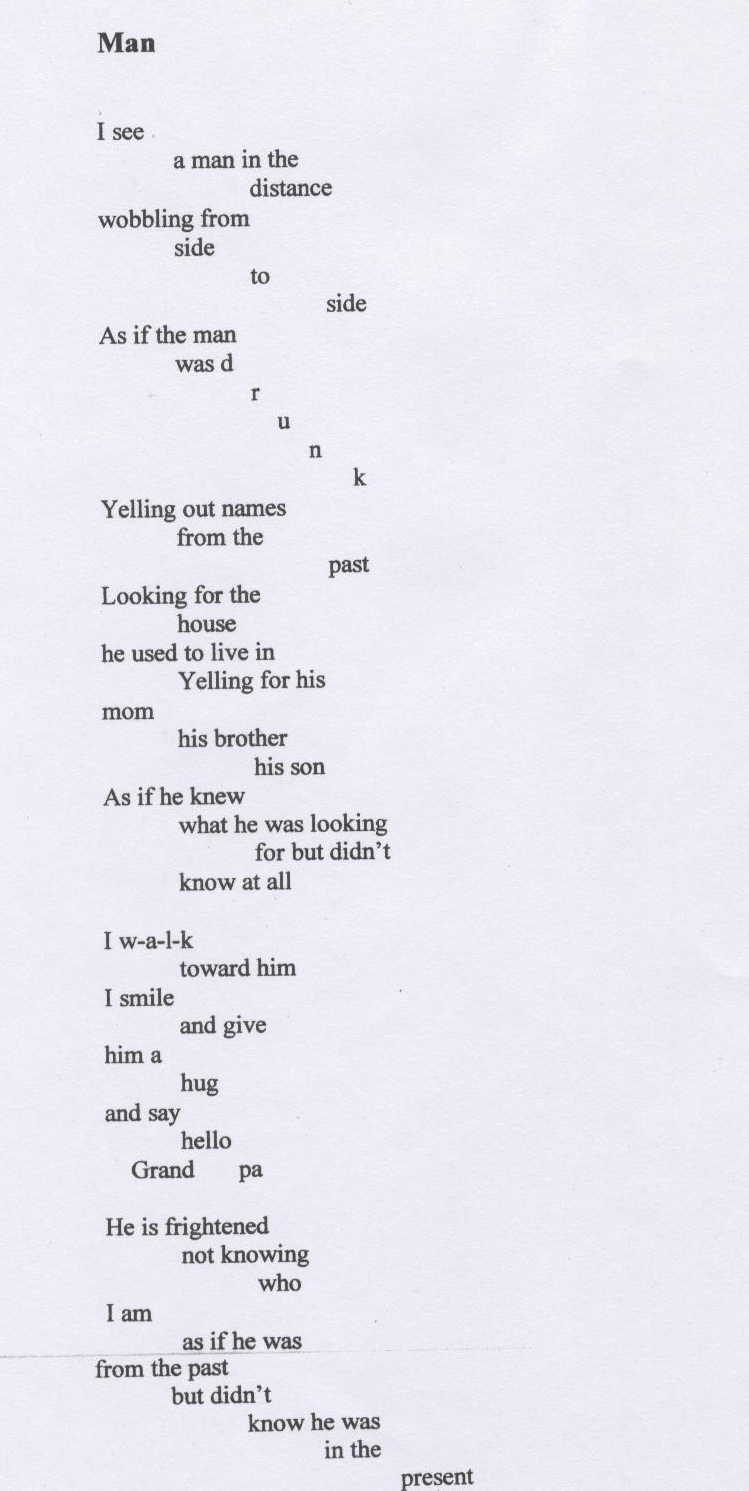2012
SARAH MOOK
POETRY PRIZE RESULTS
6-8 SECOND PLACE
Nicole
Pinter
Chicago, IL
 |
|
COMMENTS FROM CONTEST JUDGE MARIE KANE: This expressive poem uses unconventional aspects of poetry to make its point. The deliberately vague title, e.e. cummings-like spacing and indents, lack of punctuation, and appropriate short lines demonstrate that this poet knows the conventions of poetry by decisively breaking them. This narrative poem tells of an encounter with a "man" who is supposedly drunk; the identity of this person is not revealed until the last third of the poem, proving the poet's adept handling of restraint and his or her knowledge of what makes a gratifying story. In the opening section of the poem, the poet tells us:
I like this deliberate word and letter positioning representing action in the poem. The placement of indents and line breaks, the offset "side to side" and the slanting "drunk" are a concrete representation of the actions of someone who walks in a drunken state. The poem continues with more activities of the "man."
The reader understands that this character in the poem most likely does not know where, or even who he is, and is "yelling" his need for these specifics to the neighborhood. Seemingly random indents, but in truth, purposeful, make the actions and speech of the man in the poem disjointed, mimicking his own confusion. The poet expresses this with perfect understanding: "As if he knew / what he was looking / for but didn't / know at all." In the next section, the speaker responds to the man's actions. He or she states: "I w-a-l-k / toward him"; at this point in the poem, the reader is perhaps thinking, "Why in the world are you doing that?" The hyphens between the letters of "walk" are, again, concrete poetic conventions that appropriately describe the slow pace of that walk. In telling us why he or she walks "toward him," the poet reveals this person's identity by saying:
Here, the reader's surprise is rewarding. Note the brief lines of "and give," "hug," and "hello," and the split word "Grandpa" that deliberately and agreeably slow down the action and thus the crucial revelation in the poem. At the end of the poem, we find the Grandfather's reaction to this warm greeting. The speaker reveals that "He is frightened / not knowing / who / I am / as if he was [sic]
This heart-warming ending reveals the speaker's conscious, loving, and insightful attitude toward the grandfather's limitations. Through meaningful poetic arrangement, varied line breaks, and concrete structure, this poem demonstrates the need for understanding toward those who exhibit effects of aging. That the poet does so with grace, kindness, and a mature acceptance shows a high level of knowledge and a loving heart that satisfies. Thank you for the privilege of reading your work! Marie
Kane |